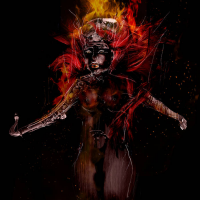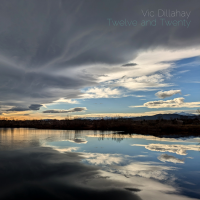Home » Jazz Articles » Catching Up With » Steve Reich: Humans Love to See Other Humans Play Music
Steve Reich: Humans Love to See Other Humans Play Music

Courtesy Martin Godwin
What we are listening to are recordings and video recordings. That's a wonderful thing but it is not like going to a concert. When you go to a concert, human beings love to see other human beings playing music. That's just in our DNA. It's in mine, it's in yours, it's in everybody’s.
The main topic of this conversation was the effect the pandemic had on him, including the new work titled Traveler's Prayer which its premiere was delayed in 2020 for the fall of 2021 in Europe and later in the US. The piece is based upon the traveler's prayer in the Hebrew prayer book which he then expanded to the road traveled from birth to death. During the pandemic, it took an even broader deeper meaning during these dark and confusing times.
I also asked him about Music For 18 Musicians (ECM, 1978) which is one of those contemporary landmark classical works that continue to be discovered and enjoyed. It is beloved by musicians and DJs from all genres and generations. It is a highly complex and rhythmically subtle piecewith a steady pulse that is characteristic of early minimalism but it also represented a significant step forward from all of his previous work to date. Resultantly it achieved a much greater sophistication and an aesthetic very different from the aesthetics established by previous generations which is one of the reasons why it is still popular today.
All About Jazz: Over a year into the pandemic, how has this confusing and dark period affected you both personally and artistically?
Steve Reich: Well, I'll tell you a story. I was speaking with a friend after the pandemic began a year ago. I was speaking with him on the phone in Sweden and he told me he had seen a cartoon recently. In the first panel, the caption in the cartoon said "Composer at Work" and the second panel said "Composer at Work in Pandemic" and the two-panel drawings were identically the same. Basically, the best way to deal with the pandemic is to just keep on composing and that is exactly what I did, like anybody else. Of course, once I finished composing, that piece is not going to get performed because all of the concerts are canceled. So, on that side, it's a completely normal situation and on the performance side, it's a completely abnormal situation that now may be beginning to change with the vaccines. That to me is the main thing. In other words, I didn't mind. We are still ordering groceries, they are either delivered or you go to a store and they bring it out and drop it in the back of your car. And we have endless Zoom interviews and we are not being able to see friends and even family except on a computer screen. This is not a good thing. I mean, it's good that we have a possibility to do that but not to the extent that it becomes a substitute for real human contact. It's obviously not a good thing at all.
AAJ: During the pandemic, arts and music became the outside world for us. Where do you see the value of music and arts in these complex and distressful times?
SR: Well, what we are listening to are recordings and video recordings. That's a wonderful thing but it is not like going to a concert. When you go to a concert, human beings love to see other human beings playing music. That's just in our DNA. It's in mine, it's in yours, it's in everybody's. Different people like different kinds of music but they all want to see human beings making music. And this is missing, it's completely missing. So there are all kinds of substitutes or "my pandemic hits." The hits of the pandemic are the pieces that can be done by one or two people. So "Clapping Music" can be done over a Zoom broadcast or streaming. Everything is streaming—no more concerts, instead we have streaming. All of the Counterpoint pieces, "Electric Counterpoint," "Vermont Counterpoint," "New York Counterpoint" where you have a soloist playing against recordings—they are perfect for the pandemic. And I'm glad to see the pieces are performed, they are good pieces. But all of this is a testimony to what has happened to us, musically speaking. The pandemic, in terms of normal human music-making is a catastrophe.
AAJ: Has the pandemic inspired any new music? In the past, you had written music inspired by collective traumas like the WTC 9/11, (Nonesuch, 2011) a composition that was premiered 10 years ago. Daniel Variations (Nonesuch, 2008) is another one that I can think of. Was there any new music written during the lockdown periods?
SR: Before the pandemic started I was working on a piece called Traveler's Prayer. In the Hebrew prayer book, there is a traveler's prayer that you say when you are in an airplane or going on a long trip. There are additional verses that are associated with it. It comes from the Bible and from there I took the text for my piece. I started it before the pandemic and it wasn't about traveling although I travel fairly often. It was path wee take—we are all traveling as human beings from birth to death. And I may be 84 years old and it's natural for me to think that way more than when I was 24 years old. So I'm starting the piece and it's a personal undertaking as all pieces are, and had no public meaning. But as the pandemic appeared and became worse, the context was changed compared to what I was working on already. I was writing this piece about the fact that we on Earth are travelers from birth to death, but people were dying in large numbers and that was completely abnormal.
And so, it actually made me feel more about the importance of the piece, not only because of my personal feelings about getting older, but it was the fact that the travelers on Earth were stopping their journey shorter than expected. The piece started completely personally, but the pandemic changed the context of the feeling of that piece and if anything, it pushed me to do this piece right. I hope I haven't. It will be premiered in Europe in the fall as it was planned to be. In New York and California, it was postponed because we are having a hard time with the pandemic and so it will happen next fall 2022. It will be done in London and Paris and Hamburg and Amsterdam in October and November, and in Tokyo in January.
AAJ: How do you look back on Music for 18 Musicians and the impact it had?
SR: Well, it had a very big impact, I became much better known, I was asked to do more and my Ensemble was very, very active at the time. We made many, many performances of that piece all around the world. And I still think it's a great piece but it's best that other people should say about it. It was very important to me writing it and its effect on my life was very, very important at the time. It reached an audience that I wanted to reach. When I was a child I studied piano briefly but then I studied percussion i.e. drumming. I was a big lover of jazz music, Miles Davis and the drummer Kenny Clarke and later John Coltrane were really important to me so I guess without trying, I wrote a quartet jazz piece which I figured this is. But you don't try to do those things, you just write the piece and you are who you are. When you listen to the music, eventually the music you played will come out. You don't have to try. It's going to come out whether you like it or not. And musically, this has reached an audience that I wanted to reach which was "people who listened to classical music, people who listened to jazz, people who listened to world music from Bali or Africa or what have you, and that was very gratifying. In the old days when there were record stores before the digital revolution, the joke was which bin will we put Music for 18 musicians in? Well, one in classical and one in jazz, and one in contemporary and one in world music
AAJ: You are someone who never rested on his laurels. Can you describe the momentum that continues to propel you forward?
SR: This is what I love to do more than anything else so until I am no longer able to do that, I will continue to do it. And I think most important is that composers may be persistent. Did you ever hear of a retired composer?
Tags
PREVIOUS / NEXT
Support All About Jazz
 All About Jazz has been a pillar of jazz since 1995, championing it as an art form and, more importantly, supporting the musicians who make it. Our enduring commitment has made "AAJ" one of the most culturally important websites of its kind, read by hundreds of thousands of fans, musicians and industry figures every month.
All About Jazz has been a pillar of jazz since 1995, championing it as an art form and, more importantly, supporting the musicians who make it. Our enduring commitment has made "AAJ" one of the most culturally important websites of its kind, read by hundreds of thousands of fans, musicians and industry figures every month.



























